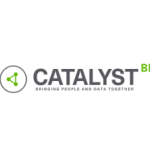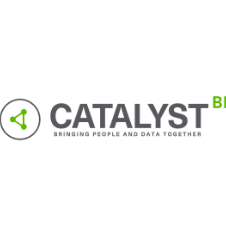Case study: Investing in business intelligence – supported by Catalyst BI
Chris Lewis, head of data and insight at DAC Beachcroft, sets out how investing in business intelligence – supported by Catalyst BI – has delivered significant gains in both business efficiency and competitiveness
Law firm DAC Beachcroft has been on a journey of exploring how investment in data management and analytics can improve aspects of performance for more than a decade, says its head of data and insight Chris Lewis.
“It was in 2011 that we first considered building our own in-house management information system to capture data more consistently and also continuously monitor its integrity,” he explains. At that time there was still little internal reporting by visualisation, with a further challenge that the work of client reporting was highly bespoke – information often pulled together for just one client, and in a process that couldn’t easily be replicated.
A few years later, after assessing the market, the firm saw potential in the business-intelligence solution QlikView (soon to be migrated to Qlik Sense) to help with the delivery of several data-related goals.
A small initial investment nevertheless started with some big fundamentals. “First, we created processes for assessing our data-entry against certain rules and generating alerts for individuals if those rules were broken,” says Lewis. “We also set out to make data more immediately accessible to people, saving them the time it takes to request it.
“We saw the introduction of executive-level dashboards for a more balanced view of performance across the business, and then worked on data in workload monitoring to support teams’ project management.” A morning ‘scrum’ meeting for a team, for example, was enabled to call up an app that effectively highlighted hours, tasks to complete, various deadlines and expected durations, and then to filter the data by different time horizons – today, tomorrow or next week.
We created processes for assessing our data-entry against certain rules, and generating alerts for individuals if those rules are broken. We also set out to make data more immediately accessible to people
In the same period, there was the launch of a substantial data literacy programme “to win hearts and minds” as to the new possibilities – something that is still front and centre of his team’s efforts to this day.
Data specialist Informance – since acquired by Catalyst BI – was brought in to supervise the development needed to deliver these outcomes. “Their consultancy was incredibly helpful,” Lewis recalls. “Even though we’ve been through rewrites since, we still follow the methodology they first put forward to this day – the technical layout, documentation and change management approach. They also had a great community and suggestions for addressing the data literacy development.”
Help yourselves
This was all part of a five-year plan to drive business improvement, which also included a certain “stretch goal” – transforming data into opportunities to increase real revenue.
In 2019, the team started down the Qlik ‘Analytics Modernisation’ programme, which extends licensing out to the expanded capabilities of displaying and disseminating business data insights using Qlik Sense.
Lewis continues: “Over time we’ve become good developers using the Qlik products, but in the last two years we’ve focused on Qlik Sense to upskill our various analysts across the firm to work differently. I myself chair a network of analysts, all of whom we’ve been training, and we’ll now increasingly involve the wider firm population as well.”
Some opportunity is very specific to an area of law. For example, the firm has developed an internal app for assessing the risk of subsidence in an area – mapping data points available online such as the coordinates of urban trees with census data about town populations and the results of historic subsidence claims.
But there are also opportunities to add value for a whole range of clients, he says – offering extra business intelligence about trends in their respective sectors and how the firm sees opposing solicitors behaving in certain situations. It has just started down a road of enabling clients to interact with the dashboards for themselves even, inviting them to perhaps share perspectives back in an iterative collaboration.
A further Qlik-based app – called Compass – enables case handlers to pull reports of how similar types of cases have progressed for others in the past; information such as the average moment that claimants settle in different sets of circumstances, estimates of ranges, and so on. “The data is automatically available to help handlers to strategise,” says Lewis. There is the advantage of streamlining process internally – potentially fewer touchpoints and less supervision required – as well as improving key outcomes for clients.
He concludes: “The investment is already starting to pay for itself through securing new work and retaining or winning clients that can see the value – and one day it may become a revenue stream as well.”
To learn more, visit: www.catalyst-it.co.uk/bi



